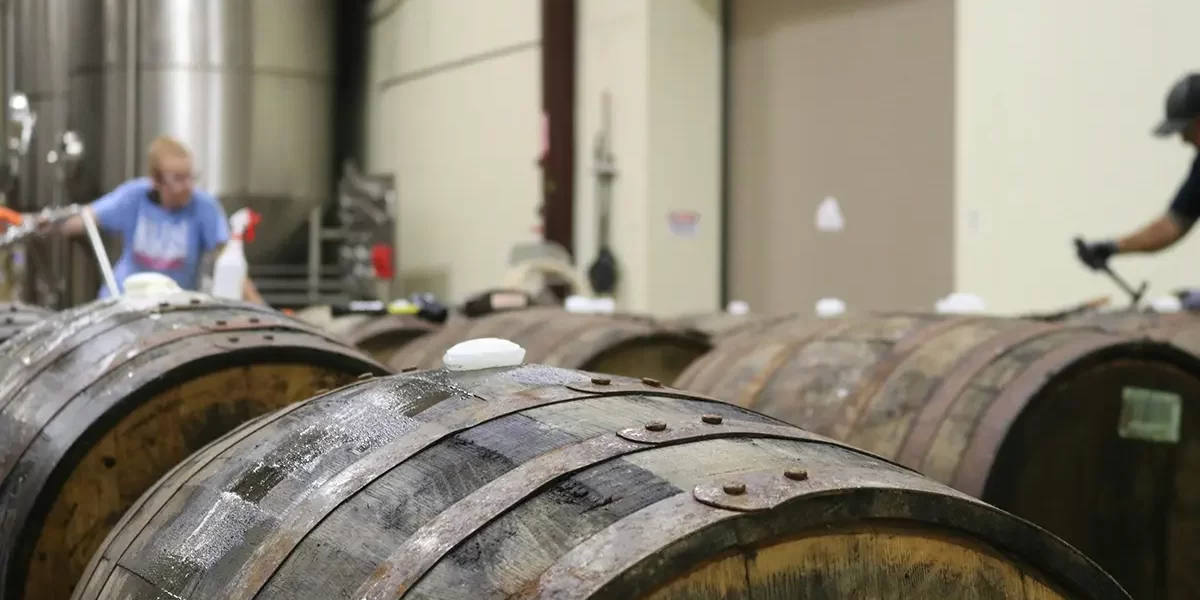The winemaking industry, revered for its traditional methods and rich history, is no stranger to innovation, especially when it pertains to ensuring the quality and safety of the final product.
Among the modern advancements, Chlorine Dioxide (ClO₂) has gained significant attention for its remarkable efficacy in sterilisation and preservation processes.
Let’s examine how Chlorine Dioxide revolutionises winemaking, balancing age-old traditions with cutting-edge technology to meet contemporary standards.
A Brief Overview of Chlorine Dioxide
Chlorine Dioxide is a potent disinfectant known for its broad-spectrum antimicrobial activity. Unlike chlorine, it remains effective across a wide pH range. It does not form harmful chlorinated byproducts, making it a preferred choice in various applications, including water treatment, food processing, and winemaking.
Application in Winemaking
The winemaking process is susceptible to microbial threats that can spoil the wine or alter its flavour. Traditionally, sulfites have been used to control these microbial populations. However, concerns over sulfite allergies and their impact on wine’s taste and aroma have driven winemakers to seek alternatives. Enter Chlorine Dioxide – a practical, taste-neutral solution.
Sterilisation of Equipment, Barrels & Bottles
One of the primary uses of Chlorine Dioxide in winemaking is sterilising equipment, barrels and bottles. Its efficacy in eliminating bacteria, fungi, and viruses ensures that the vessels used in fermentation and ageing do not introduce unwanted microbes into the wine. This is particularly crucial for wooden barrels, where traditional cleaning methods may not penetrate the porous wood effectively.
Controlling Microbial Populations in Wine
Beyond equipment sterilisation, chlorine dioxide controls microbial populations within the wine itself. Its selective action can target specific microbes that cause spoilage without disrupting the beneficial yeast and bacteria essential for fermentation and flavour development. This precision is crucial in crafting high-quality wines with consistent flavour profiles.
Environmental and Health Considerations
The environmental and health impacts of winemaking processes are increasingly under scrutiny. When used appropriately, Chlorine Dioxide offers a more environmentally friendly alternative to traditional chemical treatments. Its byproducts are minimal and less harmful, and its effectiveness at lower concentrations reduces the winemaking process’s chemical footprint.
The Debate: Tradition vs. Innovation
The adoption of chlorine dioxide in winemaking has sparked a debate between purists and modernists. Traditionalists argue that introducing chemical treatments, however benign, deviates from the natural essence of winemaking. In contrast, proponents of innovation highlight the necessity of embracing new methods to ensure the sustainability and safety of wine production in the face of evolving challenges.
The Future of Winemaking
As the industry progresses, the role of chlorine dioxide in winemaking is poised to expand. Its benefits in ensuring product safety, preserving wine quality, and reducing environmental impact align with the growing consumer demand for sustainable and health-conscious products. However, integrating such technologies must be balanced with respect for tradition and the artistry of winemaking, ensuring that the soul of the wine remains intact.
A Modern Respectful Approach
Chlorine Dioxide represents a significant advancement in winemaking. It offers a solution to modern challenges while preserving the essence of this age-old art. As the industry evolves, carefully applying such innovations will be key to producing exceptional wines that reflect their heritage and the best modern technology.
Scotmas Chlorine Dioxide Solutions
Scotmas is a leading provider of innovative Chlorine Dioxide dosing technology, making us ideally placed to support wine producers in their efforts to preserve the quality and safety of their products. Our Chlorine Dioxide systems are easy to use, cost-effective, and environmentally friendly. They provide a practical, taste-neutral solution for controlling microbial populations in wine.
If you’re looking for a reliable partner to help you adopt this cutting-edge technology, contact Scotmas today for further information.






